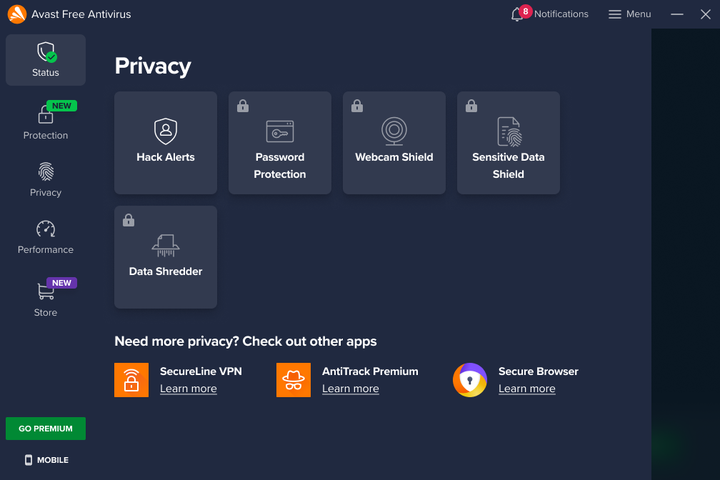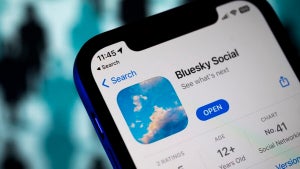Do You Really Think Your Identity Is Completely Safe Online?

- April 1, 2025
- Updated: April 1, 2025 at 1:02 PM

We live in a digital age where we share personal information daily—often without much thought. From the photos and opinions we post on social media to our banking data and passwords, there isn’t a day that goes by without us entering personal details online. Our digital footprint is enormous. With that in mind, do we truly realize the dangers lurking on the web and how they can compromise our identity?
Each day, we hear more and more about cases of identity theft, internet scams, and cyberattacks affecting millions of people. Our digital identity has become a highly attractive target for cybercriminals, exploiting any oversight to get what they want. For this reason, it’s essential to reflect on how we protect our personal information and what measures we take to safeguard it.
To help us understand the situation and encourage action, there’s Identity Management Day—a date dedicated to highlighting the importance of safeguarding our digital identity and educating ourselves on best practices.
In this article, we’ll explore what makes this day unique, the dangers that can jeopardize our digital identity, and effective best practices that help keep us safe in the virtual world—such as installing tools like Avast Free Antivirus, which can be a crucial ally in defending against online threats.
What Is Identity Management Day, and When Is It Observed?
Identity Management Day is celebrated on the second Tuesday of April each year. In 2025, it falls on April 8. Established in 2021 in collaboration with the National Cybersecurity Alliance, this annual initiative’s primary goal is to educate business leaders, IT professionals, and the general public on the importance of identity management.
The event aims to spotlight the hazards of failing to properly manage and secure identities and access credentials, promote best practices, and foster proactive actions to protect personal and corporate information.
On this day, virtual conferences, workshops, and awareness campaigns are held for both industry professionals and everyday users. They provide essential resources and knowledge that enable safer, more efficient management of digital identities.
The Internet: A Web Full of Dangers That Can Jeopardize Our Digital Identity
The expansion of the internet has brought countless benefits, but it has also opened the door to multiple threats that can put our digital identity at risk. Below are some of the most common ones:
Phishing
Phishing is a technique that cybercriminals use to deceive users and obtain confidential information—like usernames, passwords, or banking details—through emails, text messages, or fake websites mimicking legitimate entities. You might receive an email that appears to be from your bank, asking you to update personal information, but it’s actually a data theft attempt.
Malware
Malware is malicious software designed to infiltrate and damage computer systems without the user’s consent. It’s not limited to viruses: certain variants can record keystrokes, capture sensitive information, or even take full control of a device. Malware often spreads via downloads of infected files or suspicious links.
Identity Theft
Identity theft occurs when someone obtains and uses your personal data without authorization, typically for fraudulent purposes. This might include opening bank accounts, making purchases, or applying for credit in your name—potentially causing serious financial and legal repercussions for you.
Insecure Public Wi-Fi Networks
Connecting to public Wi-Fi in cafés or airports can be risky if precautions aren’t taken. Cybercriminals can intercept the information you transmit over these networks, gaining access to your personal data and login credentials.

How Can I Protect My Digital Identity?
To keep your digital identity safe, start by adopting best practices that minimize your chances of falling victim to the threats listed above. Here are some key recommendations:
- Use Strong, Unique Passwords Make sure your passwords are robust, combining uppercase and lowercase letters, numbers, and symbols. Avoid reusing passwords across different services. If you find password management challenging, consider using a reputable password manager.
- Enable Two-Factor Authentication (2FA). Two-factor authentication adds an extra layer of security to your accounts by requiring a time-sensitive code—usually sent to your mobile device—in addition to your password. This means that even if someone has your password, they can’t access your account without that second authentication factor.
- Be Careful with Links and Attachments Don’t click on suspicious links or download attachments from emails or messages, especially if they come from unknown senders; these could contain malware or be phishing attempts. When in doubt, don’t click.
- Keep Your Devices and Software Up to Date Software updates often include security patches that fix known vulnerabilities. Therefore, it’s crucial to keep both your devices and the apps you use current.
- Limit the Personal Information You Share on Social Media Avoid posting sensitive details like your address, phone number, or financial information on social media profiles. Cybercriminals can use this data for targeted attacks or identity theft.
- Install a Trusted Antivirus Having reliable antivirus software is vital to safeguard yourself from all manner of online threats, including phishing and malware. Avast Free Antivirus, for example, provides real-time protection against phishing attacks, dangerous websites, and other hazards that can compromise your digital identity.
Avast Free Antivirus: Your Best Ally Against Internet Threats
Avast Free Antivirus is a comprehensive security solution offering multiple features to help protect your online identity:
- Anti-Phishing Protection: Blocks fraudulent websites that aim to steal your personal or financial data.
- Smart Scanning: Detects and removes viruses, malware, spyware, and ransomware, keeping your device threat-free.
- Behavior Shield: Monitors suspicious activities in real-time, providing an extra layer of defense against emerging threats.
- CyberCapture: Identifies, quarantines, and analyzes uncommon suspicious files in Avast’s Virus Lab, informing you of their safety before they can harm your system.
- Protection of Sensitive Data: Prevents unauthorized apps from accessing your personal information, keeping your data secure.
These are just a few of the many functionalities offered by this free, all-in-one antivirus. If you want to browse the internet with confidence and maintain a safe digital identity, don’t wait any longer: download and install Avast Free Antivirus today and shield yourself from the perils of the online world.
Publicist and audiovisual producer in love with social networks. I spend more time thinking about which videogames I will play than playing them.
Latest from Pedro Domínguez
You may also like

Bluesky presents three levels of account verification
Read more

The FBI warns about the increase in scams targeting vulnerable victims
Read more

Be careful if you use certain mods in Helldivers 2: they could get your account banned
Read more

Nothing presents its new super cheap smartphone under the CMF brand
Read more

AI-based audio workflows in Audition: Revolutionizing sound editing
Read more

The hidden challenges of Skyrim keep players hooked a decade later
Read more